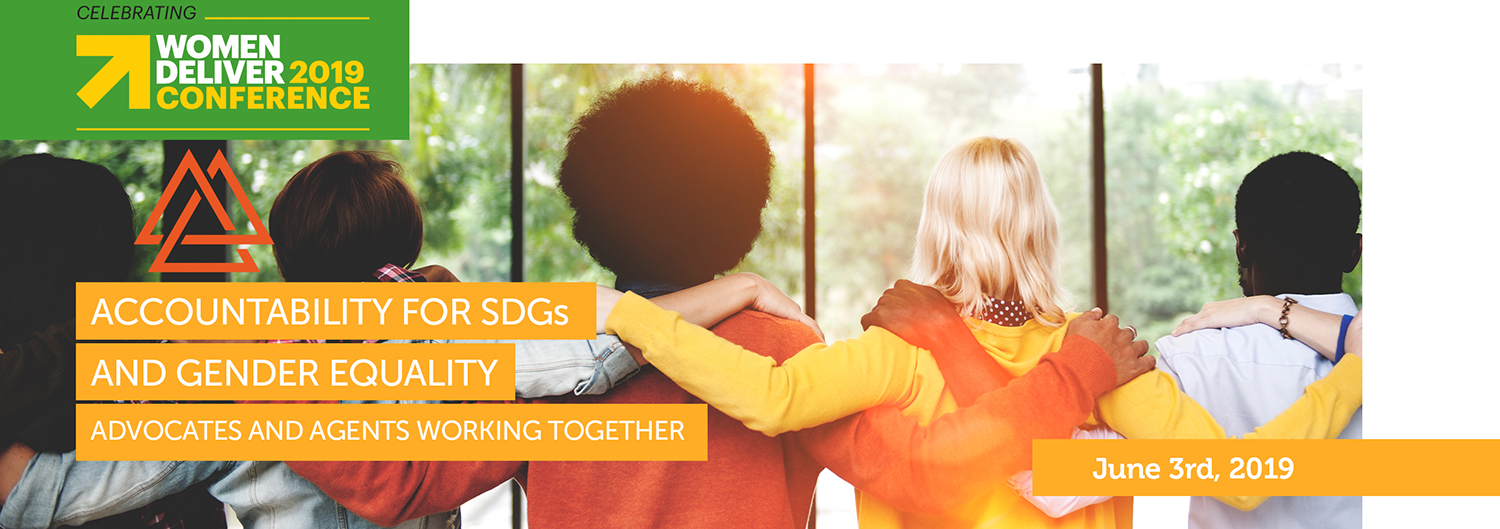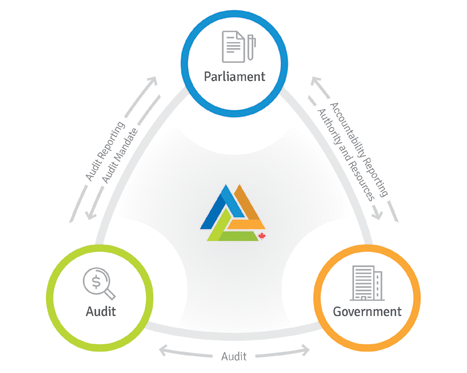
CAAF organized a side event at the Women Deliver Conference on June 3rd, 2019. During this event, we announced the launch of our newest project – the development of a new guide that will provide practical advice and guidance on how CSO’s, audit institutions and elected officials can work together to strengthen the accountability of governments for the achievement of better results on the SDGs, with a focus on gender equality.
Access our concept note to read more about the objectives of the guide and our development and consultation process.
If you are interested in being part of this project and to share your ideas, please send us an email to mhberube@caaf-fcar.ca Thank you!
Panel Session description
In all corners of the world, gender inequalities persist and impact us all. When girls and women do not have equal access to and control over resources or equal opportunities to participate in decision-making, their families, communities and countries feel the social and economic costs.
 |
|
Figure 1 – Accountability Triangle |
A country’s governments, legislatures, audit institutions and advocates for gender equality, working together as change agents, have the power and voices to make a difference by turning their attention to these inequalities.
Nearly all national governments have committed to gender equality and have now reaffirmed their commitment through the UN’s 2030 Agenda for Sustainable Development, in which gender equality is both a standalone goal and a cross-cutting priority. Meeting the Sustainable Development Goals (SDGs) targets and indicators will have broad impact, not only on a national level but will resonate at all levels including provinces and municipalities.
In many governments, accountability arrangements generally follow the structure outlined in the Accountability Triangle (Figure 1).
Audit institutions can contribute to the successful implementation of SDGs by assessing the performance of public sector programs and services in various areas (health, education, environmental protection, gender equality, etc.).
The oversight bodies (parliamentarians/Public Accounts committees) that audit institutions report to are key players in ensuring that audited organizations carry out the recommendations of the audit institutions and have a significant impact in holding governments to account.
Through collaboration or other consultation mechanisms, citizens and civil society organizations can be important advocates in the accountability cycle.
The Canadian Audit and Accountability Foundation will host a discussion that will bring together key players representing audit institutions, parliamentary oversight, and other advocates, to:
- share their thoughts and experience relative to the SDGs, and gender equality;
- discuss the challenges ahead of integrating gender equality into the SDGs; and
- discuss the mechanisms in place to hold governments accountable for their performance in implementing the SDGs.
In the peer exchange that follows, share your ideas for the development of our new guide to help CSOs engage in the accountability process. Join us in this initiative bringing together advocates and agents for gender equality!
Panel moderator
John Reed, President & CEO, Canadian Audit and Accountability Foundation
Participants on the panel
Carol Bellringer, Auditor General for the province of British Columbia
Marion Colleen Erickson, Chair of the board of the First Nations Health Authority
Julie Gelfand, Commissioner of the Environment and Sustainable Development, Office of the Auditor General of Canada
Alexandra Mendès, Member of Parliament for Brossard-Saint-Lambert
Osvaldo Rudloff, Executive Director, OLACEFS (Latin American and Caribbean Organisation of Supreme Audit Institutions)


